

Missouri farmer spreads MU Extension mission to beginning producers
COLUMBIA, Mo. – Missouri’s array of soils and topography allows producers to grow an extensive list of vegetables, from leafy greens to cucurbits. Springfield farmer Curtis Millsap is one of many producers who benefit from University of Missouri Extension guidance on commercial horticulture. Since 2003 he and his wife, Sarah, have been working with MU Extension, particularly horticulture specialist Patrick Byers.
The Myth of Multitasking
Have you ever been paying a bill online, while trying to get dinner ready, while letting the dog out, all while asking your family about their day. Societal norms have told us multitasking makes us more efficient and allows us to get more done all at once. However, the opposite is true we get less done; become more stressed; and tired. Researchers suggest that multitasking can actually reduce productivity by as much as 40%.
Never say never to nitrogen
COLUMBIA, Mo. – Sometimes it pays to be late.Nitrogen application is one of those times, says University of Missouri Extension nutrient management specialist Peter Scharf.Scharf, who has researched nitrogen application in corn, wheat and other crops for 35 years, continues to favor spring nitrogen application over fall-applied application, especially during wet years, which are becoming more frequent.
MU nursing students step up to help with patient care over winter break
COLUMBIA, Mo. – One by one, the 70 nursing students on the late-afternoon video call turned on their cameras. Some were still in nursing uniforms from clinical, some were just taking a break from studying. Every hand was raised.“I was in tears,” said Robin Harris, associate dean for academic affairs at the University of Missouri Sinclair School of Nursing.
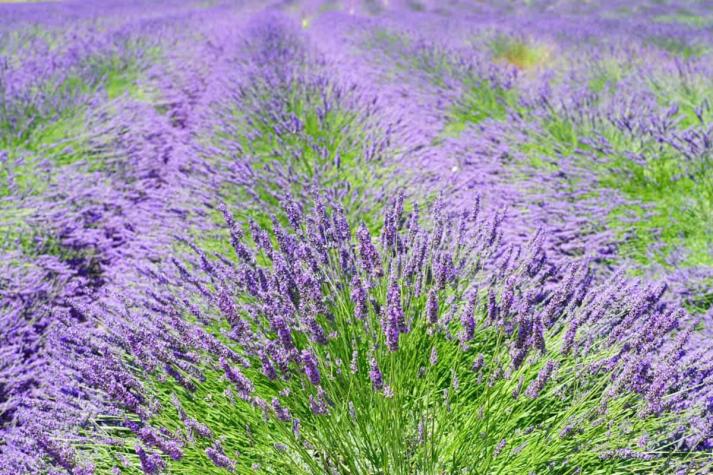
Grant aims to improve lavender growing in Missouri
COLUMBIA, Mo. – Missourians may learn more about lavender thanks to a grant to University of Missouri Extension from the Missouri Department of Agriculture.The $39,274 grant will determine standardized growing practices for lavender in Missouri.It is one of four grants recently awarded by the Missouri Department of Agriculture to MU Extension. Federal funding comes from the U.S. Department of Agriculture’s Specialty Crop Block Grant…
Adoption of precision ag varies across generations
COLUMBIA, Mo. – Farmers who fear they are falling behind in farm technology might not be as behind as they think.Kansas State University cropping system economist Terry Griffin explains that a recent Kansas Farm Management Association study on farm technologies dispels the myth that all farmers use all of the latest technology.Griffin was one of the speakers at the December 2020 University of Missouri Crop Management Conference, held…
MU research looks at technology to kill weeds
COLUMBIA, Mo. – If it’s a weed, spray it. That’s the mindset that most in the agriculture industry held for years.That thinking no longer works as more weeds become resistant to herbicides, says Kevin Bradley, University of Missouri Extension weed scientist.Bradley uses waterhemp as an example. Waterhemp is one of 14 herbicide-resistant weed species in Missouri. It is a prolific producer of seeds, and Bradley considers it Missouri’s…
MU entomologist lists pests to watch in 2021
COLUMBIA, Mo. – University of Missouri Extension field crop entomologist Kevin Rice says Missouri soybean and corn growers should be on the lookout for growing populations of yield-robbing insects in 2021. Soybean gall midge MU Extension found soybean gall midge in two northwestern Missouri counties in 2019.
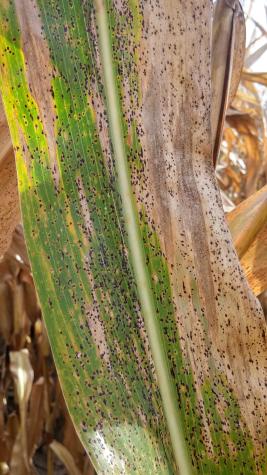
Tar spot found in NE Missouri cornfields
COLUMBIA, Mo. – Missouri corn growers should scout for an emerging crop disease, tar spot, in 2021, says University of Missouri Extension plant pathologist Kaitlyn Bissonnette. She identified tar spot in four far northeastern Missouri counties: Scotland, Lewis and Clark in 2019 and Marion in 2020. She expects it to spread in the northern half of Missouri and then to the middle of the state.
Proper hay storage reduces waste, increases profit
COLUMBIA, Mo. – There are two ways to more hay: Grow more or store it better. Many factors influence how bales make the trip from the field to the cow, says Jim Humphrey, a University of Missouri agronomist and member of the NRCS+MU Grasslands Project. Environmental factors such as sunlight, precipitation, evaporation and ground conditions can affect quality.

Missouri 4-H'ers warm state with handmade blankets
COLUMBIA, Mo. – Missouri 4-H’ers have been hard at work making blankets since the State 4-H Fashion Revue in October. Fifty 4-H’ers from 19 counties donated 72 handmade blankets to Project Linus as a result of a philanthropy challenge at the event.
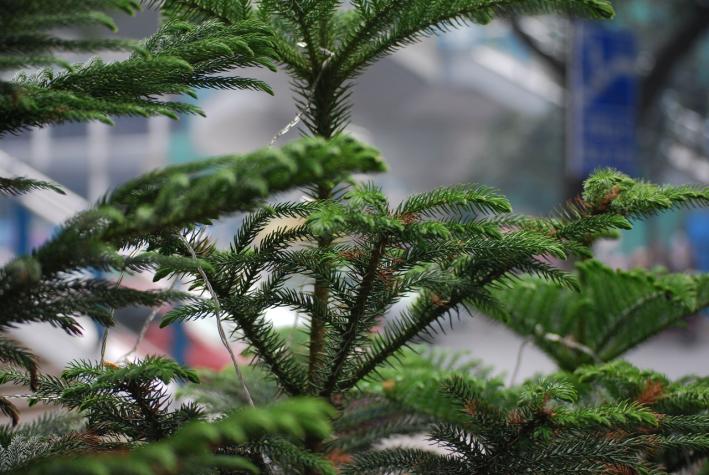
Norfolk Island pine: A houseplant for the holidays and beyond
NEVADA, Mo. – If you don’t have time or space for a large Christmas tree, consider a Norfolk Island pine. “Many stores sell these evergreen houseplants during the holidays,” says University of Missouri Extension agronomist Pat Miller. “These easy-to-grow plants often come decorated and are perfect for gift-giving or to keep for yourself.”
Having Communication Problems? We’ve Got Language Solutions, Language Solutions - St. Louis, MO
Discover professional language services in St. Louis, offering translation and interpretation solutions to improve communication in diverse communities.
Helping a Community Stay Connected, St. Charles IT - St. Charles, MO
St. Charles IT helped local businesses adapt to remote work, ensuring seamless connectivity and supporting business continuity during challenging times.
Scaling a Veteran Business, KC Cattle Company - Weston, MO
Veteran-owned KC Cattle Co. in Weston, MO, thrives with American Wagyu beef, strategic growth, and national acclaim.
Missouri trending wetter and warmer
COLUMBIA, Mo. – Missouri’s seasons are getting warmer and wetter, especially winter and spring.For farmers, this means a longer growing season, wetter fields and potential for more plant diseases and insects.Four of the five warmest winters in Missouri on record have occurred since the early 1990s, says University of Missouri Extension climatologist Pat Guinan. The five warmest springs on record have taken place since 1977.
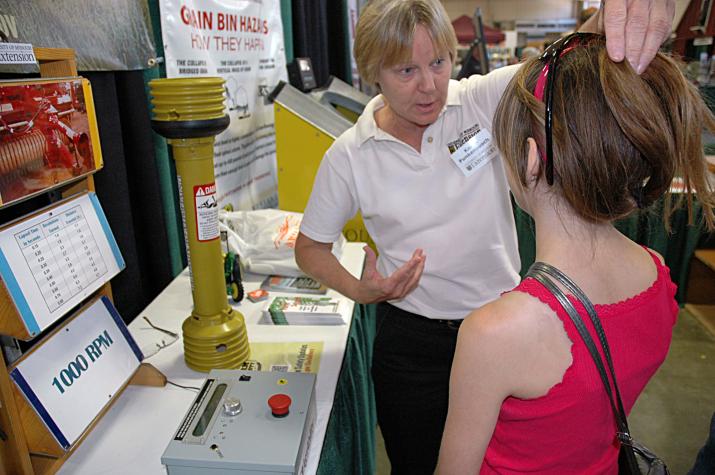
Take your time with power takeoffs
Essential safety tips for working with power takeoffs (PTOs) on farm equipment, including clothing choices and proper shutdown procedures to prevent injuries.

After the deluge
ROCK PORT, Mo. – Historic flooding along the Missouri River in 2019 has left many still repairing damage this fall.Cold, snowy weather in early 2019 set the stage for significant flooding in northwestern Missouri as spring approached, said University of Missouri Extension state climatologist Pat Guinan.
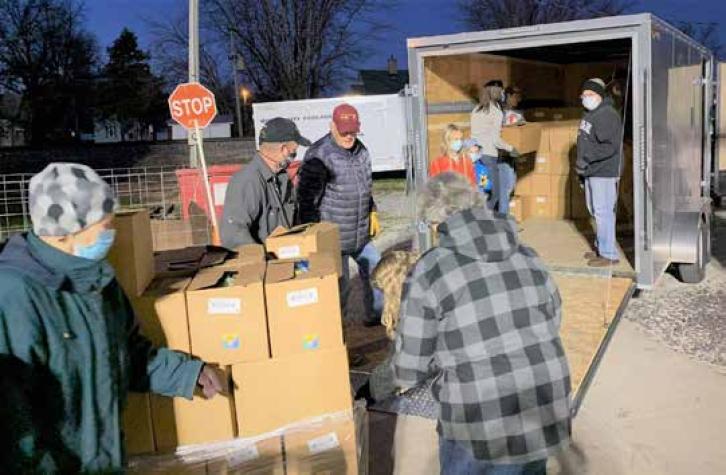
Sharing and caring
On Nov. 17 cars lined up around the block near the North East Community Action Corp. (NECAC) office in Paris, Mo., filled with families thankful for the assistance they were about to receive.That assistance was in the form of food boxes. The Monroe City Food Pantry and University of Missouri Extension in Monroe County, with assistance from the Monroe County NECAC office, were able to provide the food boxes for families struggling with…
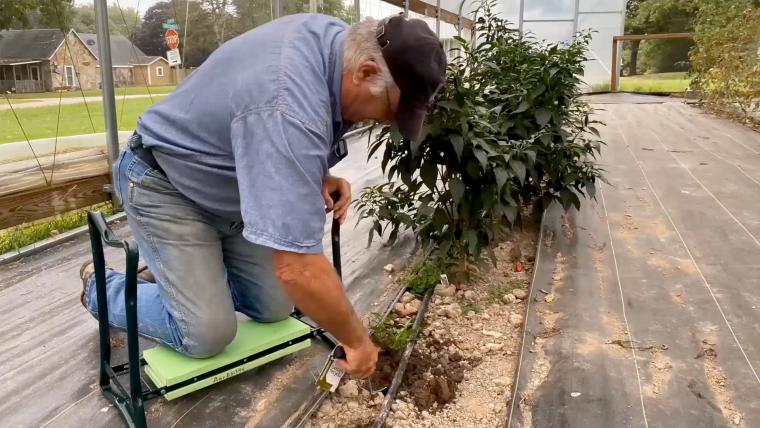
Consider ergonomics when buying garden tools
COLUMBIA, Mo. – If you have a gardener on your holiday gift list, consider user-friendly tools that suit their ability and age.When choosing tools, gardeners and gift-givers should consider ergonomics, the science of fitting equipment to create less stress on the body, says Brenda Schreck, University of Missouri Extension specialist in livestock and youth development.
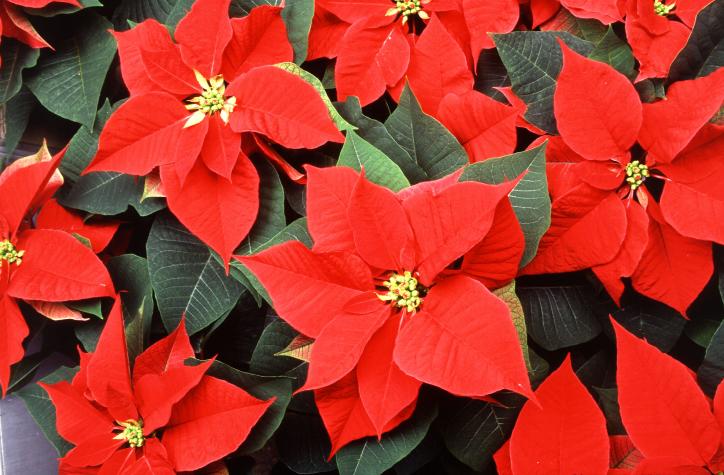
Poinsettia: America's most popular flower
COLUMBIA, Mo. – Poinsettia is our nation’s most popular potted flowering plant. What makes this remarkable is that most poinsettias are sold between the week of Thanksgiving and Christmas Day.Despite its short sales period, poinsettia contributed $170 million to the U.S. economy last year, said University of Missouri Extension horticulturist David Trinklein. Native to southern Mexico and Central America, poinsettia has become symbolic…

MU School of Medicine recognizes National Rural Health Day
The MU School of Medicine honors National Rural Health Day, highlighting its dedication to improving healthcare in rural communities.
Money does grow on trees
COLUMBIA, Mo. – Money does grow on trees, says University of Missouri Extension natural resources specialist Sarah Havens. Just how much money depends in part on knowledge and planning by the landowner, Havens says. At the recent Pixels of Production conference for women in agriculture, Havens told participants how to improve profits and forest health. Pixels took the place of the annual Pearls of Production hands-on conference.
When price is right, wheat middlings are good cattle feed
COLUMBIA, Mo. – At the right price, wheat middlings are a good source of protein, fiber and phosphorus for livestock, says University of Missouri Extension livestock specialist Kendra Graham.
